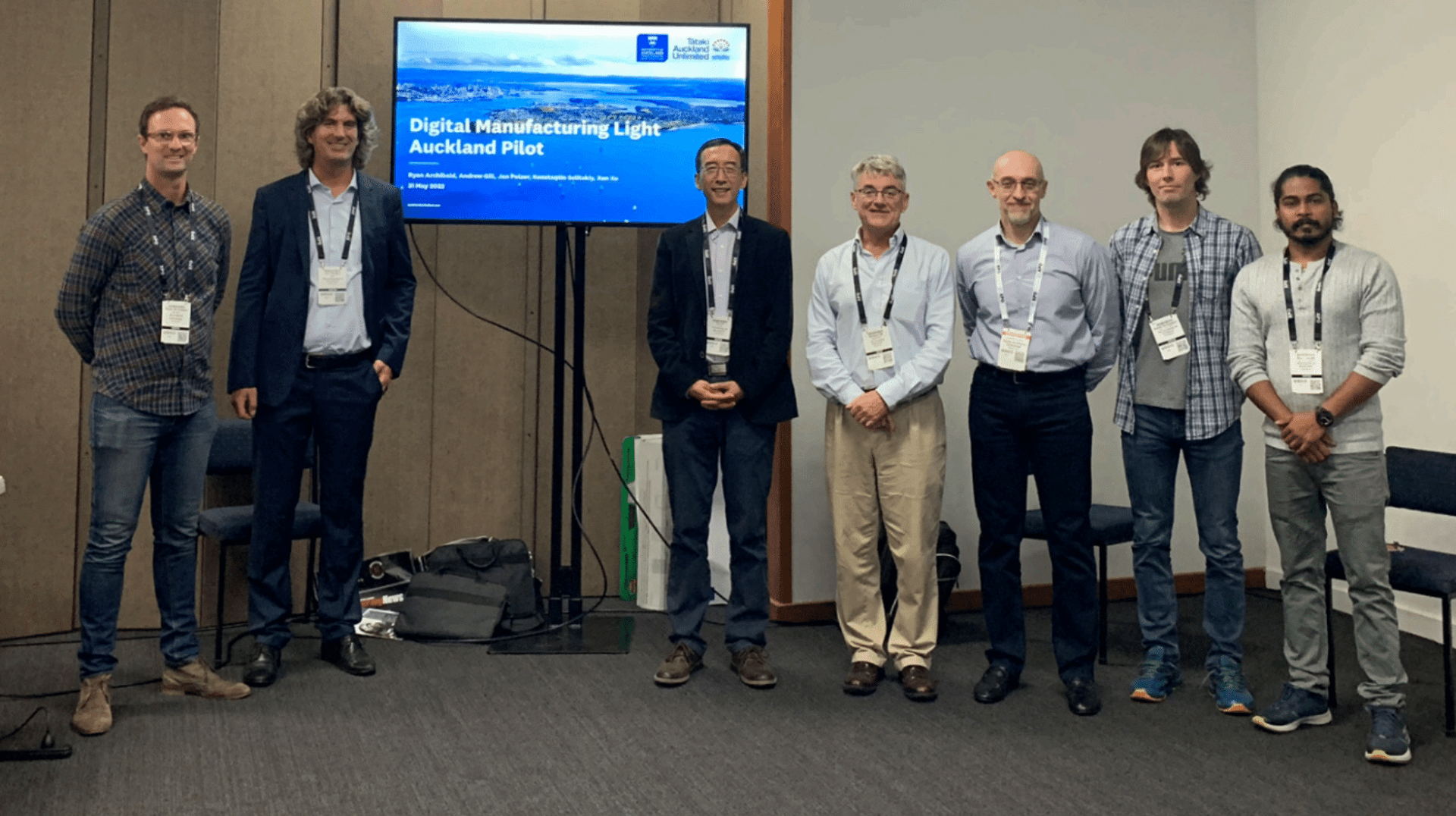By international standards, the productivity of the New Zealand economy has been very low for the last decades. One reason is that the vast majority of companies in New Zealand are SMEs with fewer than 50 employees. Firms of this size face three main barriers to investing in advanced technologies that would improve productivity: price, risk and complexity.
Respective initiatives tailored to SMEs are clearly needed. The “Digital Manufacturing Light (DM Light)” initiative partnered between the University of Auckland and Tataki Auckland Unlimited (TAU) tackles these barriers head-on. DM Light is inspired by the UK’s “Digital Manufacturing on a Shoestring (Shoestring)” programme.
- The cost barrier is removed by the low-cost approach.
- The risk barrier is removed by a non-core systems approach.
- The complexity barrier is overcome by a requirements development approach that enables companies to ‘dip their toe in the water’, adopt one digital solution at a time, build up their confidence, and enhance technology and workforce capabilities.
The DM Light approach supports manufacturing SMEs in taking their first steps towards digital transformation by identifying and developing key supporting digital technologies at a fraction of the cost and risk of traditional approaches.
The focus of this project’s first phase was a workshop with SMEs from Auckland at the Tradeshow EMEX to identify their needs and priorities. The list produced was then compared with the Shoestring Top 15 list from the UK. It was found that the priorities of the SMEs attending the workshop were very similar to the priorities of the SMEs in the UK. Furthermore, all participating companies support the DM Light approach and consider it important.
The next steps include further development of initial pilot solutions, extension to involve more companies/solutions, high-level design of possible national roll and peer review including by the University of Cambridge Shoestring research team.

DM Light Workshop team at the EMEX (From left to right: Ryan Archibald (TAU), Jan Polzer (UoA), Xun Xu (UoA), Andrew Gill (TCP), Konstantin Selitskiy (TAU), Anton Averyanov (UoA), Into Jacob (UoA))
